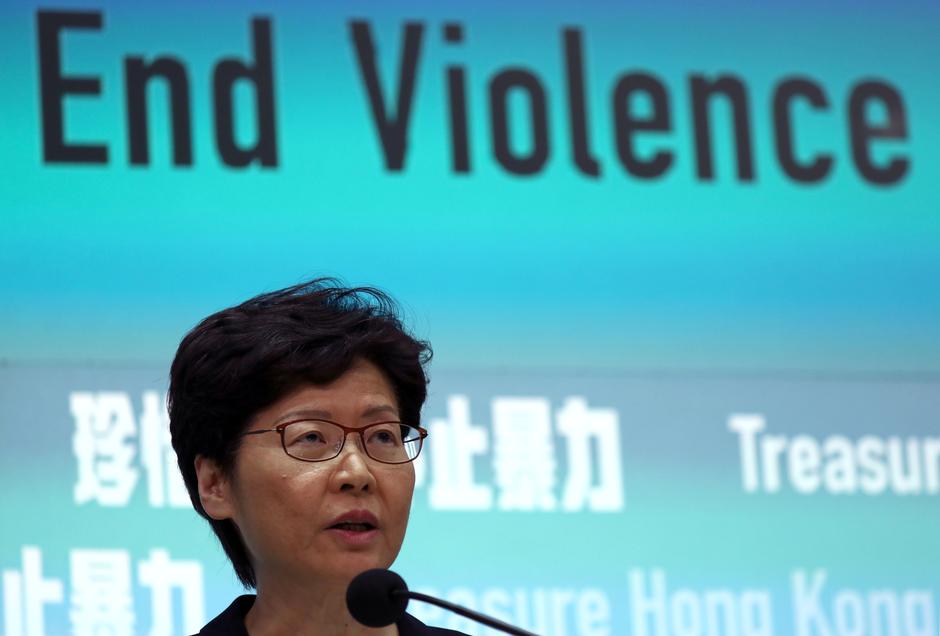HONG KONG, (Reuters) – Hong Kong’s embattled leader Carrie Lam invoked colonial-era emergency powers today for the first time in more than 50 years in a dramatic move intended to quell escalating violence in the Chinese-ruled city.
Lam, speaking at a news conference, said a ban on face masks would take effect on Saturday under the emergency laws that allow authorities to “make any regulations whatsoever” in whatever they deem to be in the public interest.
China’s Hong Kong and Macao Affairs Office praised the move in a statement that said the protests were evolving into a “colour revolution”, a term coined to refer to popular uprisings in Ukraine and other former Soviet states that swept away long-standing rulers, with interference from external forces.
“Hong Kong has reached a critical moment to stop the chaotic situation with more effective measures,” it said. “The current chaotic situation in Hong Kong cannot continue indefinitely.”
The emergency laws allow curfews, censorship of the media, control of harbours, ports and transport, although Lam did not specify any particular action that might follow beyond the mask ban.
But it was far from clear if the introduction of emergency powers would deter the protesters.
Crowds took to the streets even before the decision was announced, swelling as night fell. Banks and shops in the busy Central district closed early in anticipation of violence as some protesters burned Chinese flags and chanted “You burn with us”, and “Hong Kongers, revolt”.
Thousands of demonstrators gathered in other parts of the territory, filling shopping malls and blocking roads as protests looked set to continue into the night. Bus routes were suspended and rail operator MTR closed stations.
“The anti-mask law has become a tool of tyranny,” said Samuel Yeung, an 18-year-old university student, as crowds swelled in Central.
“They can make use of the emergency law to enact any policies or laws that the government wants. There’s no rule of law anymore. We can only be united and protest.”
“NOT A STATE OF EMERGENCY”
Many protesters wear masks to hide their identity due to fears employers could face pressure to take action against them.
“Almost all protesters wear masks, with the intention of hiding their identity. That’s why they have become more unbridled,” said Lam.
“We can’t keep the existing regulations idle and let violence escalate and the situation continue to deteriorate.”
Lam described the territory as being in serious danger, but not in a state of emergency.
Pro-Beijing groups had been pushing for a mask ban but it was not clear how the government would implement it in a city where many of its 7.4 million residents wear them every day to protect against infection following the outbreak of the deadly Severe Acute Respiratory Syndrome (SARS) in 2003.
Police can stop anyone in public and ask them to remove a mask if the officer believes it may prevent identification, according to the law. Exceptions are made if the person wearing a mask can prove they need it for medical, religious or professional reasons.
Offenders face a maximum fine of HK$25,000 ($3,200) and imprisonment for a year, according to details of the prohibition published by the government.
Four months of anti-government protests have plunged Hong Kong into its biggest political crisis since its handover from Britain to Beijing in 1997 under a “one country, two systems” formula granting it autonomy.
What began as opposition to a proposed extradition law, that could have seen people sent for trial in mainland courts, has grown into a broad pro-democracy movement and a serious challenge to Chinese leader Xi Jinping.










